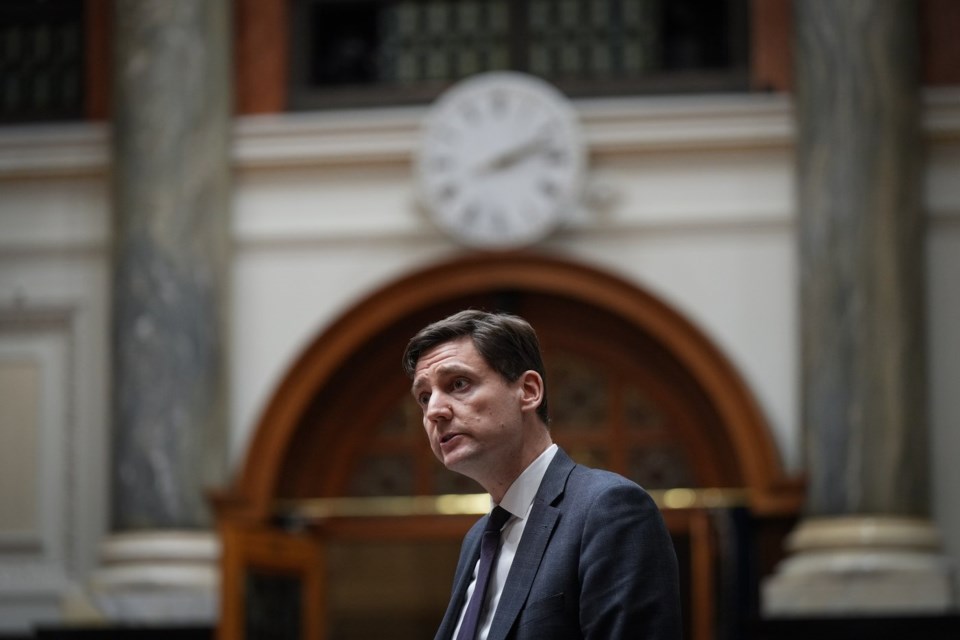Companies in British Columbia are in the process of redirecting critical minerals and energy products to markets outside the United States, Premier David Eby said, as the reality of U.S. President Donald Trump's tariffs sets in.
Eby said he had spoken with the leaders of B.C. mining and refining firms, who indicated they are redirecting products to alternative markets, ahead of Tuesday's scheduled imposition of 25 per cent U.S. tariffs on Canadian products, with the exception of energy, which faces a 10 per cent tariff.
"Their pivot is to redirect their commodity materials, things like aluminum, copper, wherever they have access to tidewater to get things out, they're redirecting to other markets that are not (imposing tariffs)," Eby said.
"It is painful for them, logistically, to be able to make those shifts. But they are making those shifts because they have to."
The premier told a news conference in North Vancouver that B.C. would not be left out of the "historic reordering" of global trading patterns that is underway.
He said the shift presents an opportunity for the province to "build allyship and partnership" with others Trump is targeting or threatening with steep tariffs, including Mexico, the European Union and the United Kingdom.
"We'll link arms with those other affected countries, we'll deepen our trade. We have what the world needs. We have the confidence to do it, and we're going to do it."
Eby noted B.C. has opened new trade offices in Taiwan, Vietnam and the Philippines over the last 18 months.
"We're going to continue to do that work. There is unlimited potential," he said.
Directions have already been issued across the B.C. government and provincial Crown corporations to avoid contracts with American companies in the procurement process for major projects, the premier added.
"This is literally billions of dollars in spending … that we are prohibiting those contracts going to American firms," he said.
Eby said the "only response" to Trump's tariff plan for B.C. is for public money to go to countries that recognize Canadian sovereignty.
"It's going to go to Canada first wherever we can."
Eby said "there's no question" both Canadians and Americans would be better off if Trump backed away from his tariff plan, but in the meantime, B.C. will be strengthening its economy and reducing its exposure to the United States.
"We're going to make sure that we have other deep relationships, trading relationships, so that our families are safe. We're transforming our economy to ensure independence and our sovereignty as a province and as a country."
The premier said his government would also make sure B.C. is never again in the position where it is "so exposed to the whims of one person in the White House."
Eby's comments came shortly before Prime Minister Justin Trudeau was set to speak with Trump Monday afternoon.
Trump said earlier Monday that he thought he would have another "very good conversation" with Trudeau, but added Canada is "very tough" to deal with and gave no hint he would back away from the plan.
The president's stated rationale for the tariffs is to exert pressure on Canada to stop the flow of illegal drugs and migrants into the United States.
But Trump also has cited the United States' trade deficit with Canada, which is based almost entirely on Canadian oil and gas exports.
He has said Canada can avoid the tariffs if it becomes a state and has suggested he would use "economic force" to make that happen.
"What I'd like to see? Canada become our 51st state," Trump said on Monday, adding "we don't need them for anything."
— With files from The Associated Press and Sarah Ritchie in Ottawa.
This report by The Canadian Press was first published Feb. 3, 2025.
Brenna Owen, The Canadian Press


